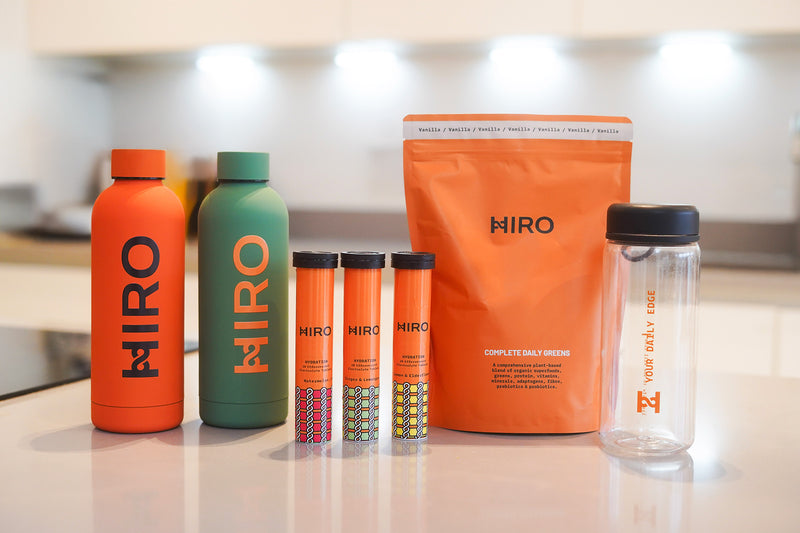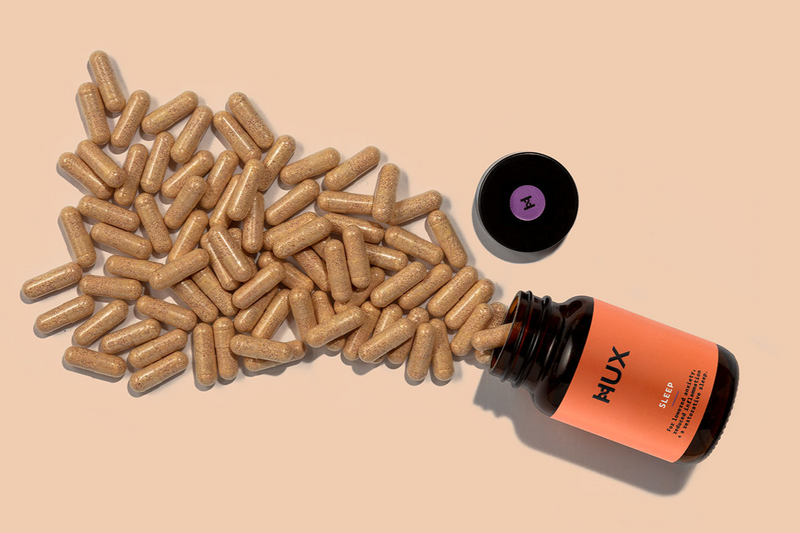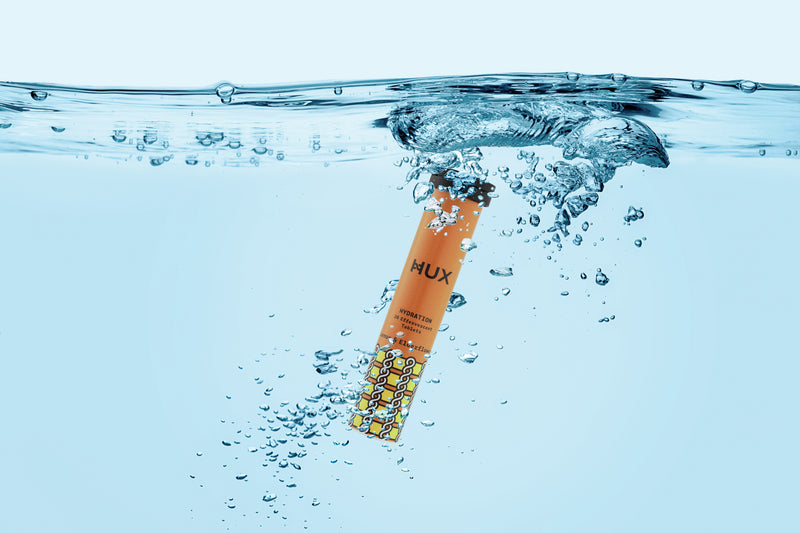PCOS Awareness Month: Maddy's personal experience & what's helped
Hi, I’m Maddy, co-founder of HIRO - this month is PCOS Awareness Month - and I thought it was a great opportunity to share my personal experience with PCOS (Polycystic Ovary Syndrome), and what's helped me.
 I was diagnosed with PCOS a few years ago, but in reality, I’d been dealing with the symptoms for much longer. Irregular periods? Check. Chin breakouts that seemed to appear at the worst times? Double check. Like so many women, I brushed it off for years before getting answers.
I was diagnosed with PCOS a few years ago, but in reality, I’d been dealing with the symptoms for much longer. Irregular periods? Check. Chin breakouts that seemed to appear at the worst times? Double check. Like so many women, I brushed it off for years before getting answers.
That’s why I think PCOS Awareness Month is so important. Not only does it shine a light on a condition that affects 1 in 10 women of reproductive age, but it also gives us space to share our stories, swap tips, and support one another.
So, here’s my take: what PCOS is, how it can show up, and some of the things that have really helped me manage it day to day.

What is PCOS?
PCOS stands for Polycystic Ovary Syndrome. It’s a hormonal condition that affects how the ovaries work. Despite the name, it doesn’t always mean you’ll have cysts on your ovaries. Instead, it’s more about hormone imbalances - too much androgen (the so-called “male hormone”), insulin resistance, and irregular ovulation are the main culprits.
Because hormones affect pretty much everything - from your skin to your energy levels to your menstrual cycle - PCOS can feel like it impacts every part of your life.
Common Symptoms
One of the most frustrating things about PCOS is that it doesn’t look the same for everyone. But some of the most common symptoms include:
-
Irregular or missed periods (sometimes going months without one, then getting heavy or painful bleeds)
-
Skin issues like acne and oiliness, often along the jawline or chin
-
Excess hair growth in places you don’t really want it (chin, chest, stomach)
-
Hair thinning on the head
-
Weight fluctuations or difficulty losing weight
-
Fertility struggles, since irregular ovulation makes it harder to conceive
Personally, my biggest battles have been my skin and my cycle - two things that can really knock your confidence when they’re out of whack. Taking HIRO's Essential Woman + Collagen has been the thing that's made the biggest difference - it's packed full of ingredients that support PCOS symptoms - you can see images of my skin below before & after starting it and this is just after a couple months!

What’s Helped Me Manage PCOS
Now, I’ll be honest: there’s no one-size-fits-all approach to managing PCOS. There isn’t a “cure,” but there are definitely ways to feel better, manage symptoms, and support your body. Here are a few things that have made a huge difference for me:
1. Supplements that support hormone balance
There are a few nutrients I’ve found especially helpful:
-
Vitamin D – Many women with PCOS are deficient, and topping up can improve mood, cycles, and insulin sensitivity.
-
Magnesium – Great for reducing stress, supporting better sleep, and balancing blood sugar.
-
Omega-3s – Anti-inflammatory and helpful for both skin and hormones.
-
B vitamins – Especially B12, which can help with energy and metabolism.
-
Inositol – Often recommended for PCOS as it can improve insulin sensitivity, support regular cycles, and boost fertility.
-
Resveratrol – A powerful antioxidant that may reduce androgen levels (the hormones behind acne and excess hair) and support better ovulation.
Of course, supplements aren’t a magic fix, but paired with a balanced diet, they can be game-changing.
2. Foods that love your hormones back
 Diet is huge when it comes to PCOS, but let me be clear: it’s not about restriction, it’s about support.
Diet is huge when it comes to PCOS, but let me be clear: it’s not about restriction, it’s about support.
-
Protein + fibre with every meal keeps blood sugar stable (which is so important for PCOS).
-
Lots of colourful plants (greens, berries, cruciferous veg) to support detoxification and reduce inflammation.
-
Healthy fats like avocado, olive oil, nuts, and seeds — essential for hormone production.
For me, simply focusing on whole, nourishing foods rather than overthinking calories or restrictions has helped massively.
3. Lowering cortisol (your stress hormone)
 Stress is a sneaky trigger for PCOS flare-ups. High cortisol can make insulin resistance worse and throw hormones further off balance.
Stress is a sneaky trigger for PCOS flare-ups. High cortisol can make insulin resistance worse and throw hormones further off balance.
Some things that have helped me lower stress:
-
Daily walks outside - nothing fancy, just fresh air and movement.
-
Spending time with my sister’s dog Nina - aka the best dog in the world.
-
Saying “no” more often (still working on this one 🙃).
4. Gentle exercise > intense HIIT
 I used to think smashing myself with high-intensity workouts was the only way to feel fit. But for PCOS, endless HIIT can actually be counterproductive. It spikes cortisol, which in turn messes with blood sugar and hormones.
I used to think smashing myself with high-intensity workouts was the only way to feel fit. But for PCOS, endless HIIT can actually be counterproductive. It spikes cortisol, which in turn messes with blood sugar and hormones.
Now I focus on:
-
Strength training
-
Pilates or yoga
-
Low-intensity cardio like walking or cycling
It’s amazing how much better my body feels when I move with it rather than against it.
Final Thoughts
Living with PCOS can be challenging, but it doesn’t define you. I’ve learned that managing it is less about aiming for perfection and more about finding balance - in food, in movement, and in lifestyle.
This PCOS Awareness Month, I want to encourage you to check in with your body, get curious about your health, and remember: small, consistent changes can make a huge difference.
And if you need a little extra support? Well, you know where to find us - HIRO is all about making daily nutrition and hydration simple, effective, and actually enjoyable.



